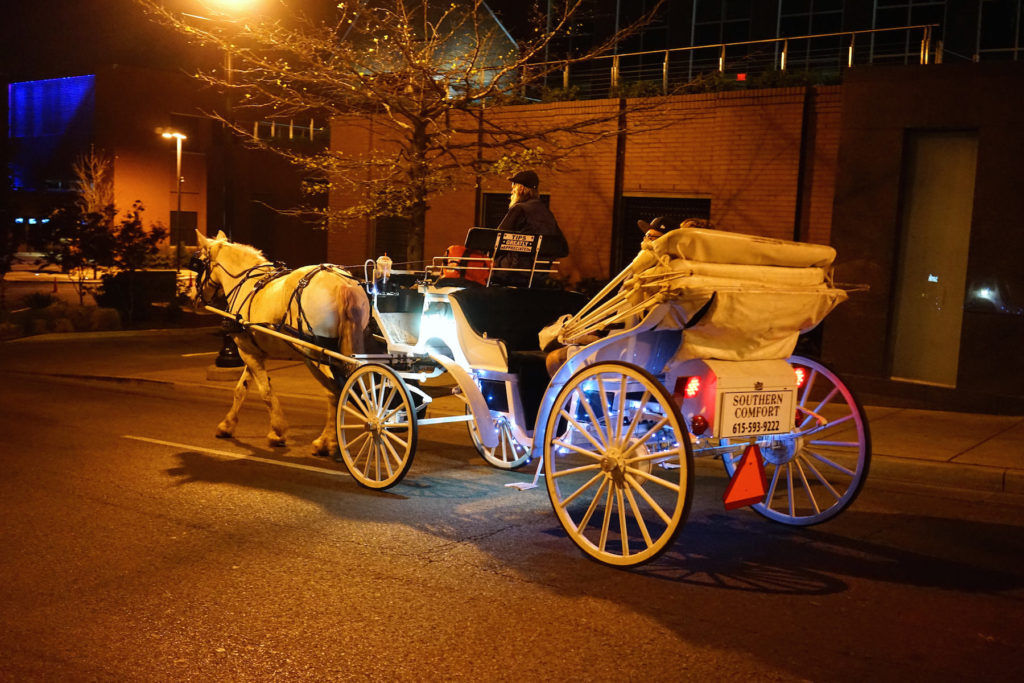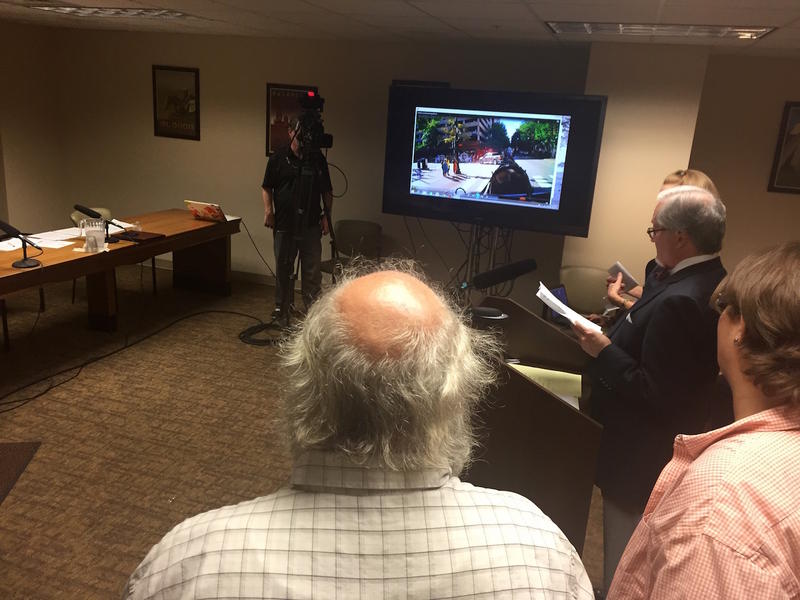
Nashville’s downtown horse carriage companies are having trouble getting along.
The four operators recently filed more than 50 complaints against one another. And while each allegation alone would be minor, taken together they expose turmoil in a highly visible part of the city’s tourism industry.
“It’s like those experiments I read about in college, where you put a whole bunch of rats in a small space and they start fighting,” said lawyer Gary Blackburn, who represents Sugar Creek Carriages, which is right in the thick of the cases.
“I’m not calling these people rats, but it’s the same phenomenon. … Nobody anticipated that Nashville would turn into a theme park. So here we are. And the laws haven’t caught up.”
He contends that Metro needs a new way to manage the carriages and to enforce the safety rules governing the menagerie of golf carts, party barges and pedal taverns on Lower Broadway.
It was against this backdrop — plus years of running disputes among the companies — that the Transportation Licensing Commission called for a special meeting Tuesday.
It quickly devolved into a freewheeling 3-hour session of tit-for-tat bickering. There were innumerable interruptions, procedural sniping, literal finger pointing, outright yelling and weary calls for calm from the commissioners.
“There have been so many counter-charges and allegations of favoritism, and everything else, that we want to give you everything that we had,” commission director Billy Fields told members of the panel. “It’s sort of been a challenge.”
On paper, the complaints concern where the carriages park and pick up passengers — and how horses are controlled.
But drivers like Kenny Hale of Southern Comfort Carriages went much further in the meeting, alleging bullying and harassment on the streets and “frivolous” complaints that he said are meant to undercut his company.
“I’m tired of the bull crap. I’m tired of the harassment. It’s got to stop,” Hale said.

He described almost daily tensions and an utter loss of courtesy among the drivers.
“You can’t even wave at them people, because they don’t say nothing back,” he said.
Another recurring theme: discomfort at what some consider nonstop video surveillance, a result of some Sugar Creek drivers wearing body cameras. Their footage was used repeatedly during the hearing to bolster their cases.
At times, clips were played frame by frame as commissioners tried to see possible violations, such as carriage drivers briefly releasing the reins, checking their phones or stepping more than 10 feet away while parked.

Many complaints were dismissed, as commissioners said that even the video clips were inconclusive.
“That’s the problem,” Blackburn, the attorney, said afterward. “We saw obvious circumstances where people could be injured, badly. In one of them, that was obvious, and they couldn’t find a pigeonhole to put it in.”
Other complaints were withdrawn, as drivers openly admitting that they filed them as a form of retaliation. Commissioner Steve Turner offered a sarcastic lament about the narrow authority of the licensing commission: “Otherwise, we could put everyone in a corner and take their toys away.”
In the end, the commission gave three drivers, including Hale, the light penalty of probation.
But the board is bracing for even more complaints, which some drivers explicitly promised.


